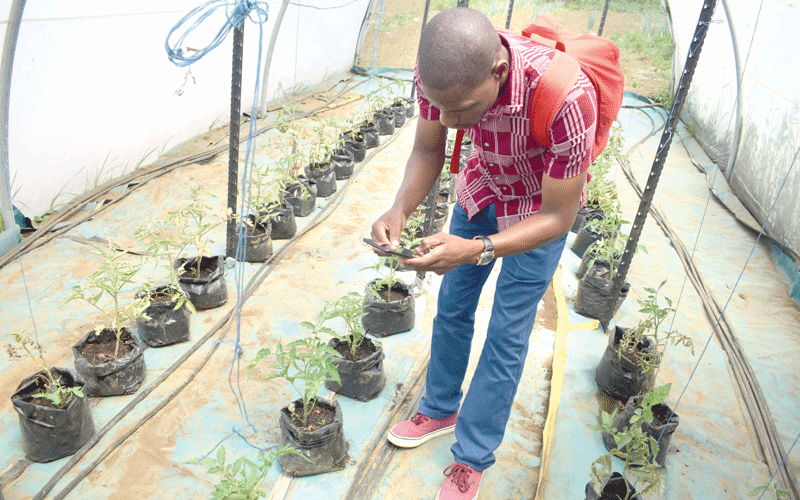App pegs on indigenous knowledge to combat drought
By Harriet James, July 8, 2020
Working with traditional prediction and data from weather stations, Prof Muthoni Masinde set up a platform to alert farmers on changing weather.
Harriet James @harriet86jim
From increasing temperatures, altering rainfall patterns, to interfering with land productivity, climate change seems to be the defining issue of our time and one of the obstacles undermining the growth of agriculture in the country, a sector that accounts for over a fifth of the GDP.
Consequently, over 65 per cent of the population living in rural areas suffers devastating losses and eventual imminent food crisis not only in Kenya, but all over Africa.
It is against this background that Kenyan computer scientist, Prof Muthoni Masinde created a mobile app, Information Technology and Indigenous Knowledge (Itiki), which alerts farmers on drought via SMS.
“Itiki is an innovation I came up with when I was pursuing my PhD in computer science at the University of Cape Town here in South Africa.
I spent all my childhood working very closely with my mother and siblings in the small farms and taking care of animals.
It is here that I learnt about our culture and what my people used to predict drought.
Planting would be done when specific clouds were spotted and we would also stop temporarily whenever dragonflies would fly ‘too high’.
This would mean that the rains are going away,” she narrates. When there was dew on the grass, Prof Masinde mother’s would hear her grandmother say the rains had gone away.
Bridging the gap
In time, they all became experts in predicting the weather. This knowledge remained with her and was the main driving force when she opted to undertake her PhD.
“Seeing the havoc that climate change has now caused, I knew that it was time for me to contribute to the conversation.
While I was struggling to get the name for my innovation, somehow, the bridge that my mum and siblings often used to cross River Thiba, in Embu came to my mind. The bridge is called ‘Itiki’.
Since my solution was a bridge between the indigenous ways of doing things and the modern one, I had the name,” says the mother of four.
The app combines traditional knowledge and meteorological information to give a more accurate predication.
The innovation also involves eight Itiki ambassadors, who are always in the field with smartphones with the app to capture the information on real-time basis.

If they spot the dragonfly or ants moving in a straight line, for instance, they record this incident on the phone and take a picture as evidence.
“Once such events are recorded in our servers, and based on the in-built computer algorithms we have developed, a forest of information is generated.
This of course puts into consideration other weather information from weather stations. We have access to weather data from these locations,” she explains.
The forecasts are then disseminated to relevant farmers via SMS and in local languages such as Kimbeere.
Although they first rolled Itiki out in Kenya and Mozambique in 2013 and 2015 respectively, the growth in the app usage took place in the last three years.
Succes and awards
The 47-year-old is proud that 2,382 and 6,058 farmers in Mozambique and Kenya have benefited from the app and have produced 1,500 tonnes of produce on 17,000 hectares and 4,000 tonnes on 46,000 hectares respectively.
Over 1,952 farmers in South Africa have also benefitted, producing 1,000 tonnes of food on 1,000 hectares.
The computer enthusiast has bagged several awards for the innovation, including the Distinguished You Woman Scientist in 2016,and four Vice Chancellor Excellency Awards at Central University of Technology in Free State, South Africa, where she is currently based.
In 2017, she received Sh53m from USAID to convert Itiki into a viable business.“I would say, this has been the turning point for Itiki and myself.
This award has brought me to various platforms in the world such as the World Bank Forum in Washington DC,” she says.
While she is patriotic to her country, Prof Masinde believes things would have been different if she were living in Kenya.
While Kenya is ahead in terms of ICT innovations, its universities are still underfunded in research, something she wants to see changed.
“Lack of funding has crippled many potential innovations. South African has generously funded research and Itiki has greatly benefited from this.
Innovators need more support from government; it does not even need to be monetary — if we can embrace these innovations, use them ourselves and improve them,” she says.